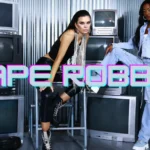
In the dynamic world of entertainment, a new player has emerged, captivating audiences and creators alike: Non-Fungible Tokens, or NFTs. These blockchain-based digital assets have been making headlines, reshaping the way we interact with digital media, and opening up novel opportunities for artists, musicians, and content creators. Join us on a journey through the fascinating landscape of NFTs in the realm of entertainment.
The Rise of NFTs in Entertainment
In recent years, NFTs have surged in popularity, driven by the desire for digital ownership and the allure of exclusive content. These unique tokens allow creators to tokenize their work, from artworks to music albums, offering an unprecedented level of ownership and authenticity to buyers. NFTs have found a natural fit in the entertainment industry, where artists can monetize their digital creations, tapping into a global audience. Digital art, music, and virtual experiences have all found their place in this burgeoning ecosystem.
The Entertainment Revolution
The Digital Art Explosion
NFTs have given birth to a thriving digital art market. Renowned artists are embracing this digital renaissance, creating unique, tradable pieces of art. Each NFT carries with it the digital signature of the artist, ensuring its authenticity and provenance.
Musicians and Their Digital Vinyl
Musicians are also benefiting from NFTs. They can release albums as NFTs, granting buyers exclusive content and even access to backstage experiences. This novel approach to music distribution empowers artists and connects them more intimately with their fans.
Virtual Realities and Exclusive Experiences
NFTs are not confined to 2D art and music. Virtual worlds and exclusive experiences are taking the spotlight. Gamers and enthusiasts can purchase virtual real estate, avatar skins, and exclusive in-game items as NFTs, shaping the future of gaming and immersive experiences.
The NFT Marketplace
Navigating the Ecosystem
The NFT marketplace is a thriving ecosystem with a multitude of platforms, each offering unique features and benefits. Ethereum-based platforms like OpenSea and Rarible have gained popularity, but competitors like Binance Smart Chain and Flow are also making waves.
The Role of Smart Contracts
At the core of NFTs are smart contracts. These self-executing contracts ensure that ownership and royalties are automatically distributed to creators every time the NFT changes hands. This innovation has opened up new revenue streams for artists, making it a game-changer in the entertainment industry.
Challenges and Controversies
Environmental Concerns
The explosion of NFTs has raised concerns about the environmental impact of blockchain technology. The energy-intensive proof-of-work system used by some blockchains has led to criticism. However, many platforms are transitioning to more eco-friendly alternatives, such as proof-of-stake.
Copyright and Plagiarism
The issue of copyright and plagiarism is a growing concern. NFTs have raised questions about how to protect intellectual property and prevent unauthorized minting of digital assets. Solutions are emerging, but this remains a challenge to be addressed.
Final Words
NFTs in entertainment have undoubtedly disrupted the status quo, offering new avenues for creativity, ownership, and revenue. As the digital revolution continues to evolve, we can expect even more innovation in this space. With the world of entertainment forever changed, the future holds endless possibilities.
Commonly Asked Questions
1. What exactly is an NFT in entertainment?
An NFT, or Non-Fungible Token, is a digital asset that represents ownership of a unique item, such as digital art, music, or virtual real estate. In the entertainment industry, NFTs have enabled artists to tokenize their work, giving buyers exclusive ownership and access to their creations.
2. How do NFTs benefit artists and creators?
NFTs empower artists and creators by allowing them to sell their digital works directly to their audience, bypassing traditional intermediaries. This provides a new revenue stream, ensures provenance and authenticity, and establishes a direct connection with fans.
3. Are NFTs environmentally friendly?
The environmental impact of NFTs is a subject of debate. Some blockchains, like Ethereum, use energy-intensive proof-of-work systems. However, many are transitioning to more eco-friendly alternatives, such as proof-of-stake, to reduce their carbon footprint.
4. Can I resell an NFT after buying it?
Yes, NFTs are tradable. When you purchase an NFT, you have the option to sell it in the future. Smart contracts built into NFTs ensure that creators receive a percentage of the resale value, creating ongoing benefits for artists.
5. What is the future of NFTs in entertainment?
The future of NFTs in entertainment is incredibly promising. As technology continues to evolve, we can expect more innovative use cases, broader adoption, and a deeper integration of NFTs into the entertainment industry, offering creators and audiences even more exciting opportunities.









